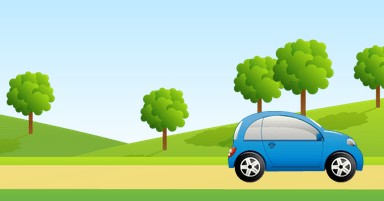*Environmental Benefits Of Washing Your Car At A Professional Carwash. I am working with the International Carwash Association to share these tips.
No, this is certainly not a car giveaway, for heaven sakes! But, this is a fun one. But first I must inform you all of the environmental benefits of washing your car at a professional car wash!!!! Yay!
Did you know that professional car washes are typically a much greener option for washing your vehicles? I never knew that, but do now!

Washing your vehicle at home, with a garden hose, can use more than 60 gallons in as little as five minutes, but most professional car washes treat and recycle water, virtually eliminating waste. Soo good to know!
Also, the average homeowner uses 116 gallons of water to wash a car, according to the Mid-America Regional Council, and most commercial car washes use 60 percent less water for the entire process than a homeowner uses just to rinse the car! Sooo crazy to learn this! Wow…

WaterSavers professional car washes use only 40 gallons or less of fresh water per car wash ( that’s less than the typical home washing machine uses per load). I think from now on, I am going to take my car to the local car wash station!!! Saves ME time and is better for us! You should too! So this summer, put that hose down and take your car to the local car wash to help not only save water but protect aquatic life and preserve the environment.
For more information and to find a certified location near you, visit WashWithWaterSavers.com
Lily Kwan says
I learned that WaterSavers car washes prevent water pollution by routing wash water to treatment prior to its return to the environment.
Samii Meyer says
I learned that it is a bad idea to wash your car on the pavement because the runoff can cause pollution
laurie says
When you wash your car on pavement, the run-off carries the grime and chemicals into the soil and storm drains that empty directly into our rivers
Terry Cross says
I learned that a clean car can improve fuel economy.
Richard Hicks says
leanred that carwashes use 40 gal water and it is recycled and that to wash at home it takes 60 gal!
brich22 at earthlink dot net
Susan Smith says
I learned that washing your car in your driveway or parking lot can polute our lakes and rivers
Robin says
I learned that driveway and parking lot washing can waste valuable gallons of water and pollute lakes, rivers and streams, as the runoff water contains harmful chemicals that will enter waterways through storm drains.
Roxann says
I learned that the average home washing machine uses 41 gallons of water per load.
Tiffany Mann says
I learned that car washes use about 40 gallons of water per car, which is less than what the average wash machine uses.
AmyBond says
I learned you get better fuel economy with a cleaner car! Who would have guessed?!
Jill Myrick says
I learned that there is a car wash using water savers less than ten miles from my home.
jweezie43[at]gmail[dot]com
Sarah L says
Closest car wash to me:
1.06 miles $5 Bucks Car Wash
Thanks for the contest.
kolpin says
i learned that WaterSavers members must use an average of no more than 40 gallons of potable/fresh water per car in conveyor and in-bay/roll-over systems.
rafflecopter: daniel
tiffany klimarchuk says
i learned that washing your car in your driveway or parking lot can polute our lakes and rivers!
Jennifer R. says
I learned that the cleaner your car, the less wind resistance? That means better fuel economy.
Rosanne says
Charity car wash runoff can effect aquatic life in streams
Annmarie W. says
I learned that the closest location to me is the Kuhnsville Car Wash! I know where that is, but have never been. I’ll need to go there!
Annmarie W. says
I learned that the closest location to me is the Kuhnsville Car Wash! I know where that is, but have never been. I’ll need to go there!
jessica edwards says
driveway runoff can pollute waterways
kelley wood says
The ICA is in 20 countries.
cassie says
i learned the average home washing machine uses 41 gallons of water per load. yikes!!
Cynthia R says
i learned washing your car on pavement pollutes because run off and grime gets into the soil.
Wendi S says
The International Carwash Association is in 20 countries.
Ruby Yoshi says
I learnt that the average home washing machine uses 41 gallons of water per load
betty says
I learned not to wash my car on the pavement
Maryann D. says
I learned WaterSavers car washes use an average of no more than 40 gallons (151.5 liters) of fresh water per car. All of that water is either recycled or returned to the environment cleanly.
Janet F says
Today’s car wash technology is washing cars more safely and effectively than ever before.
janetfaye (at) gmail (Dot) com
Denise Taylor-Dennis says
I learn that they make a system that saves water using only 40 per wash and cleans the water before it is released.
pinky sade says
Learned that washing vehicles on pavement causes harm to local waterways
Jennifer T. says
I learned that carwashes use, on average, less water than a washing machine.
jtmagmom73(at)gmail(dot)com
Nannypanpan says
I learned there is a wash called splash in my state
Heather Hayes Panjon says
I Learned That The water used in WaterSavers car washes is cleaned through filtration or treatment systems prior to returning to the environment, or it is used again.
Monique Rizzo says
I learned that runoff from your car can actually cause pollution.
Thanks for the chance.
[email protected]
Janet F says
I learned: Did you know that the cleaner your car, the less wind resistance? That means better fuel economy.
janetfaye (at) gmail (dot) com
janetfaye (at) gmail (dot) com
Ann Fantom says
I learned that the closest Water Savers location is 21 miles away from me in Mahopac, NY
Cynthia C says
I learned that driveway runoff can pollute our waterways.
latanya says
I learned With more than 300 million registered passenger vehicles in North America, the enormity of the pollution problem becomes obvious.
Julie Lynn Bickham says
I learned that the cleaner your car, the less wind resistance.
Jessie C. says
I learned that driveway and parking lot washing can waste valuable gallons of water and pollute lakes, rivers and streams.
Janet W. says
I learned By reducing water pollution in our communities, we are protecting our streams, rivers and water tables.
steve weber says
I learned that Watersaver car washes treat the water before returning it to the environment.
Marti Parks says
I learned that when we wash our car on pavement, the run-off carries grime and chemicals into the soil and storm drains that empty directly into our rivers.
renee walters says
I learned WaterSavers® car washes prevent water pollution by routing wash water to treatment prior to its return to the environment.
Geoff K says
I learned that according to the U.S. Environmental Protection Agency, the average home washing machine uses 41 gallons of water per load.
Amanda Alvarado says
I learned that Watersaver car washes treat the water before returning it to the environment
Margaret Smith says
I learned that they have a criteria to follow to become WaterSavers designation